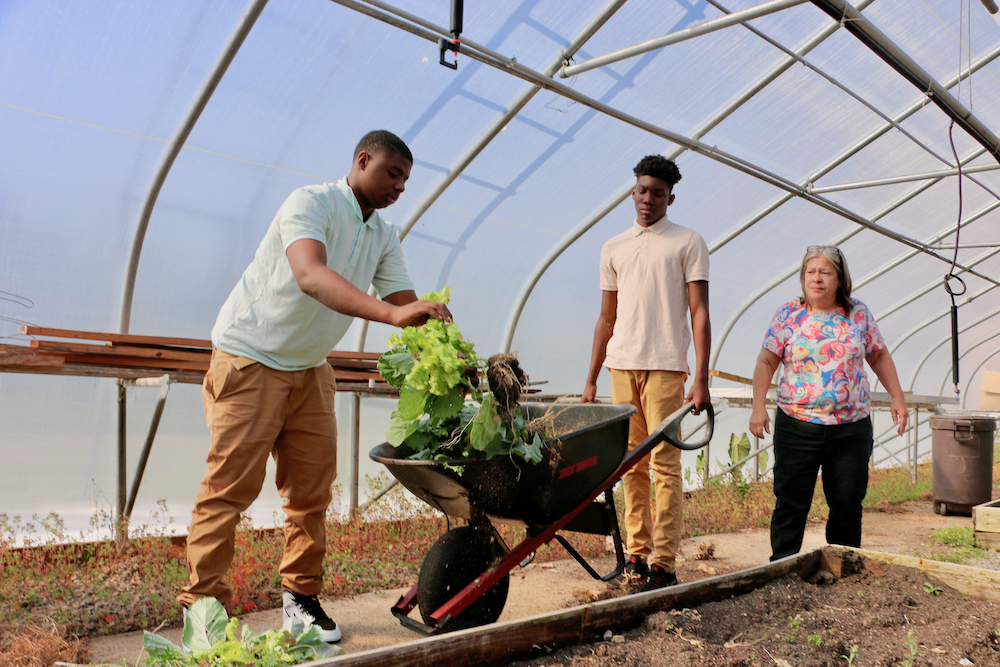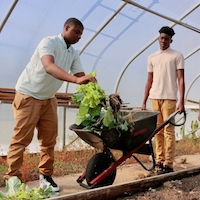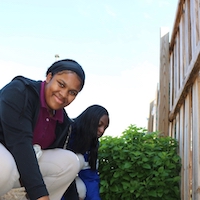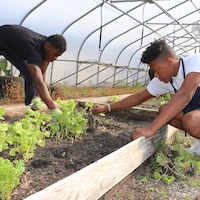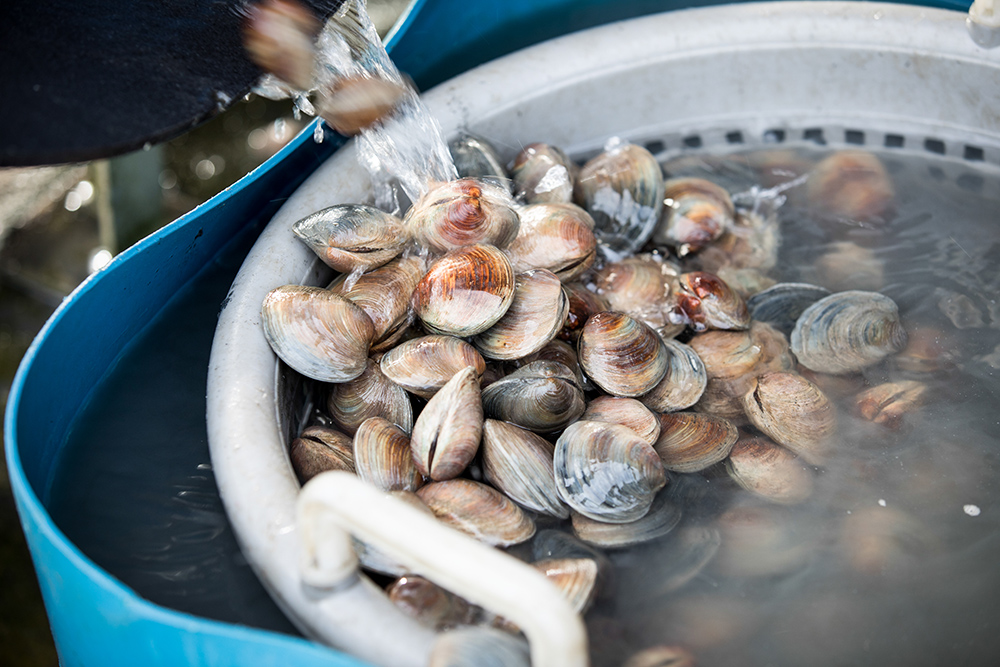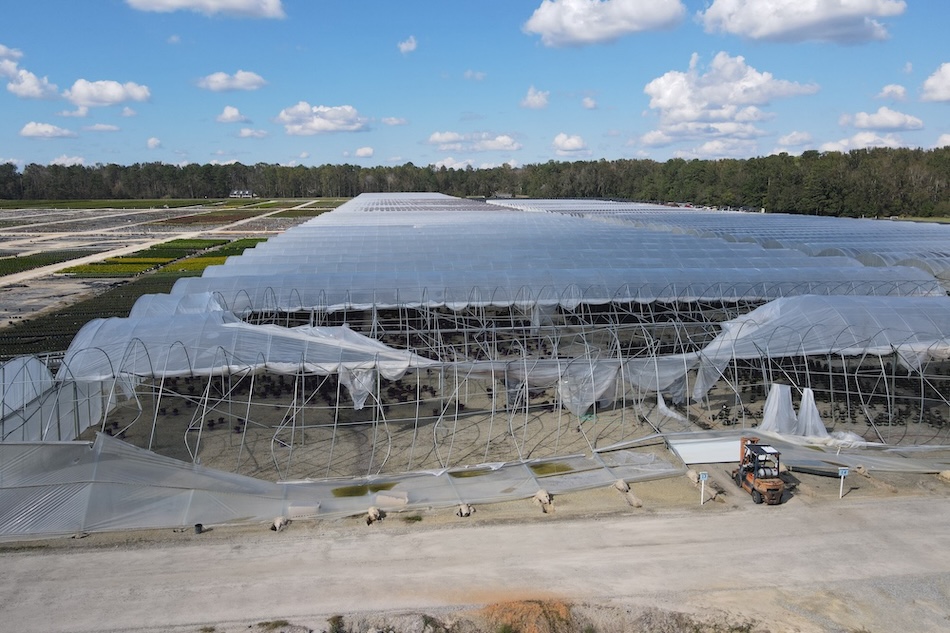It may not use the fanciest place settings or offer wine pairings, but the best farm-to-plate eatery in Warren County, Georgia, is — by far — the school cafeteria.
The best part is that all the entrees are reasonably priced and there are no reservations required.
Over the last four years, Scott Richardson, director of food and nutrition for Warren County Schools, has worked with Warren County farmers, school administrators, lunchroom staff and local University of Georgia Cooperative Extension agents to integrate local produce and meat into the school nutrition programs.
The result of this multipronged approach to feeding a school has helped to connect Warren County’s 620 students to their community’s agricultural backbone while giving local farmers access to a new local market. It has also given the students — especially middle- and high-school students — a sense of the importance of providing themselves and their younger classmates with healthy and delicious food.
“Learning how to be good stewards of the land, practicing environmental sustainability and learning the nutritional value of eating fresh, locally grown and harvested foods is something unique to the educational curriculum in Warren County,” said Richardson, who also serves as the career, technical and agricultural education director for Warren County Schools.
After four years building their farm-to-school program, the Warren County school community celebrated a banner year in 2018-2019. Georgia Organics recognized the school system with a Golden Radish Award for excellence in organic production methods and the inaugural Outstanding Extension Farm-to-School Program Award from Golden Radish partner University of Georgia Cooperative Extension.
Warren County, which is home to about 5,250 Georgians, only has one school campus for kindergarten through 12th grade. That campus served about 640 students this past school year.
The school system’s small footprint allows older students in agriculture classes to produce enough food to supply the cafeteria with local vegetables on a regular basis, Richardson said. Students work with agriculture teacher Peggy Lynn Armstrong to grow leafy greens in the school greenhouses during the winter and harvest from a 1-acre garden plot during the spring and fall.
Last year, agriculture classes planted muscadine vines in their garden and installed a waste-saving drip irrigation system for the grape plants and garden plot. This year, students helped put in a nine-tree orchard consisting of three varieties of pear, fig and nectarine trees.
When there haven’t been enough veggies in the school garden to supply the cafeteria, Richardson has worked with County Extension Coordinator Tammy Cheely to source locally grown produce from Warren County farmers.
In addition to serving students school-grown produce three times a week, last fall the school system began partnering with local farmers to serve locally raised beef.
“I always tell the farmers that I work with that they are all in this together and whatever is good for one of them is good for all of them. I think this locally grown beef effort is a perfect example of that,” Cheely said.
Jeff Kent of Kent Countyline Cattle worked with two other producers — Big Woods Ranch and White Creek Cattle — to supply 2,300 pounds of U.S. Department of Agriculture-inspected ground beef to the school. It has been used in everything from hamburgers to spaghetti sauce to tacos, and the students notice the difference in quality when it's being served, Cheely said.
Working to supply the school system allowed Kent and his partners to test the local market, and now the farmers are expanding into direct-to-consumer beef sales as well.
“In beef cattle, the margins are small,” Kent said. “We make more money selling meat than we do selling a cow on the hoof. This way we know we’re feeding (local kids) beef that was raised the way we think it should be raised.”
Working to bring community partners — farmers, the school system, parents and students — together to improve the lives of school children in Warren County is a goal of UGA Extension in all of the state’s counties.
“Partnerships multiply our efforts,” Cheely said. “We always accomplish more together.”
In the coming years, Richardson hopes to expand the school system’s traditional agricultural education to sixth through eighth grades and add fruit trees to the school’s property.
“When other schools look at Warren County, I think they can learn a lot about being efficient with school garden plans,” said Becky Griffin, school garden outreach coordinator for UGA Extension and Golden Radish board member. “They are putting food on the table for students during the lunch period, not just taste testing. Warren County shows that it’s a doable system. You can actually supply your lunchroom from the garden.”
Across the state, there are about 1,000 school gardens and hundreds of farm-to-school programs. The growth of these programs is a testament to their impact on students’ diets and their understanding of the natural world, Griffin said.
For more information about the school and community programs offered through UGA Extension, visit the Center for Urban Agriculture.

